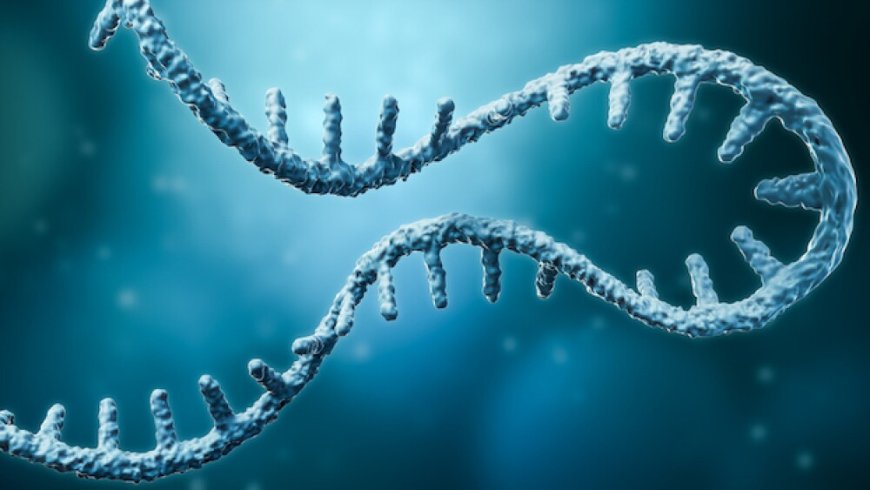Personalized mRNA Vaccines for Pancreatic Cancer: A Game-Changer in Cancer Treatment
Discover how personalized mRNA vaccines are revolutionizing pancreatic cancer treatment. Learn about groundbreaking research, clinical trials, and future advancements in cancer immunotherapy!

Introduction
Pancreatic cancer is one of the deadliest forms of cancer, with a survival rate that hasn’t improved much over the years. Traditional treatments like chemotherapy and radiation often fail to stop the disease from spreading. But what if there was a way to train the body’s immune system to fight pancreatic cancer more effectively?
Enter personalized mRNA vaccines—a revolutionary approach that could transform cancer treatment as we know it. Thanks to groundbreaking research and advances in mRNA technology, scientists are now developing custom-made cancer vaccines that could significantly improve survival rates for pancreatic cancer patients.
So, how do these vaccines work? And why is this such a big deal? Let’s dive into the science and explore how personalized mRNA vaccines could change the future of cancer therapy.
What Are Personalized mRNA Cancer Vaccines?
You might be familiar with mRNA vaccines from COVID-19 vaccines developed by Moderna and Pfizer-BioNTech. These vaccines use messenger RNA (mRNA) to teach the immune system how to recognize and fight viruses. Now, scientists are applying the same technology to cancer.
Personalized mRNA vaccines for pancreatic cancer are custom-designed for each patient. They work by:
- Analyzing the patient’s tumor to identify specific mutations unique to their cancer.
- Creating an mRNA vaccine that instructs the immune system to recognize and attack cancer cells with those mutations.
- Injecting the vaccine into the patient, allowing their immune system to mount a precise and powerful defense against the cancer.
This approach is completely personalized, meaning that each vaccine is tailored to an individual’s cancer profile.
How mRNA Vaccines Target Pancreatic Cancer
Pancreatic cancer is hard to treat because it grows rapidly and spreads before symptoms appear. Additionally, the immune system often fails to recognize pancreatic tumors as a threat. Personalized mRNA vaccines aim to overcome these challenges by:
- Activating the immune system to recognize pancreatic cancer cells as dangerous.
- Stimulating T-cells (a type of immune cell) to attack and destroy cancerous cells.
- Creating long-term immune memory, reducing the chances of recurrence.
This means that, instead of relying on chemotherapy or radiation—which often harm healthy cells—mRNA vaccines use the body’s own immune system as a powerful cancer-fighting weapon.
Latest Advancements in Personalized mRNA Vaccines for Pancreatic Cancer
1. Groundbreaking Clinical Trials
One of the most exciting developments in this space is an ongoing clinical trial led by BioNTech and Memorial Sloan Kettering Cancer Center. In early results, researchers found that personalized mRNA vaccines triggered a strong immune response in half of the pancreatic cancer patients who received them. More importantly, these patients showed no cancer recurrence after 18 months—an incredible breakthrough for a disease with such low survival rates.
2. Combination Therapies for Enhanced Effectiveness
Scientists are now testing mRNA vaccines in combination with other treatments, such as:
- Checkpoint inhibitors (like PD-1 blockers) that help the immune system stay active longer.
- Chemotherapy to weaken cancer cells, making them easier for the immune system to destroy.
- CAR T-cell therapy, another immunotherapy that uses genetically modified T-cells to attack tumors.
These combination approaches could boost the effectiveness of mRNA vaccines and improve patient outcomes even further.
3. Faster, More Efficient Vaccine Development
One of the biggest advantages of mRNA technology is how quickly vaccines can be developed. Unlike traditional cancer treatments, which take years to refine, mRNA vaccines can be designed and produced in a matter of weeks. This speed allows doctors to create personalized cancer vaccines much faster, giving patients a better chance at survival.
4. Expanding mRNA Cancer Vaccines to Other Cancers
While pancreatic cancer is one of the most difficult cancers to treat, researchers are also exploring mRNA vaccines for other cancers, including:
- Lung cancer
- Melanoma (skin cancer)
- Colorectal cancer
This means that the success of mRNA vaccines in pancreatic cancer could pave the way for a new era of personalized cancer treatments across multiple types of cancer.
Challenges and Future Outlook
Despite the promising breakthroughs, personalized mRNA vaccines for pancreatic cancer still face some challenges:
- Cost & Accessibility: These treatments are expensive and not widely available yet.
- Vaccine Production Time: While faster than traditional methods, personalized vaccines still require time to develop for each patient.
- More Research Needed: Larger clinical trials are necessary to confirm long-term benefits and safety.
However, with continued investment in cancer immunotherapy and rapid advancements in mRNA technology, experts believe these challenges will be overcome in the next few years.
The Future of Cancer Treatment: Hope on the Horizon
The development of personalized mRNA vaccines marks an exciting turning point in the fight against pancreatic cancer. For decades, pancreatic cancer has been one of the most difficult-to-treat cancers, but this new approach offers real hope for patients and their families.
As research progresses, we could soon see a future where a simple injection trains the immune system to eliminate cancer—without the severe side effects of chemotherapy and radiation. Personalized mRNA vaccines could be the key to transforming cancer from a deadly disease into a manageable condition.
So, are we on the brink of a cancer vaccine revolution? All signs point to YES!
What's Your Reaction?
 Like
0
Like
0
 Dislike
0
Dislike
0
 Love
0
Love
0
 Funny
0
Funny
0
 Angry
0
Angry
0
 Sad
0
Sad
0
 Wow
0
Wow
0



















































